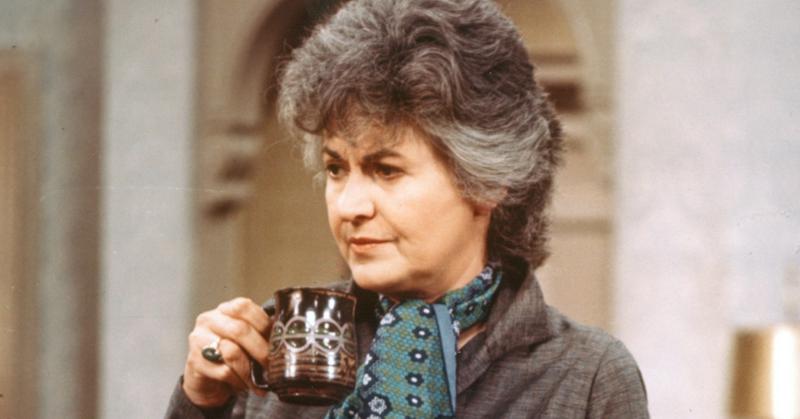Abortion On A Sitcom? Bea Arthur's Dilemma On 'Maude'
By | November 18, 2020

In November 1972, the Bea Arthur sitcom Maude took on the topic of abortion, which was as much a hot-button issue then as now. The two-part story "Maude's Dilemma" found the main character, a 47-year-old grandmother, unexpectedly pregnant, and pondering her options -- at the same time the U.S. Supreme Court was pondering the landmark case Roe v. Wade.
Maude was a hit show from the beginning, and would finish its first season in fourth place as measured by Nielsen. For a new show, tackling a topic like abortion might have been a risky move, but Maude was created by Norman Lear as a spinoff of his wildly successful All In The Family, a sitcom that was known for challenging its audience to laugh at uncomfortable topics.

Sometimes television shows transcend the medium, like The Sopranos or Breaking Bad. More often, in the groovy era, television shows attempted to do more than simply entertain. Iconic sitcoms like Good Times and All In The Family tried to impart life lessons that struck a sentimental chord with their massive audiences. In 1972, the hit show Maude made history by really pushing the envelope and centering an episode around abortion.
In 2020, abortion ranks as a hot button topic capable of ending a Thanksgiving dinner with a screaming match and hurt feelings. Obviously, back in the ‘70s abortion was even more controversial. When Maude’s courageous creatives aired the episode, the landmark Roe v. Wade decision was still two months away.
The Idea

Weirdly, the impetus for Maude’s abortion episode came from a group called “Zero Population Growth.” According to Rod Parker, producer of Maude, “The group Zero Population Growth announced they were giving a $10,000 prize for comedies that had something to do with controlling population, so everyone came in with ideas for vasectomies."
Norman Lear, All In The Family creator and head of Maude, contemplated ideas in which Maude’s neighbor played by Rue McClanahan became pregnant. Ultimately, Lear decided that was a cop-out and a miscarriage plot was nixed because that idea was already used in an All In The Family episode.
Going For Broke

Maude served as a perfect vehicle for such a touchy subject. The show’s whole identity centered around Maude’s chaotic, crazy, and loud life juxtaposed against the idyllic TV housewives like Donna Reed and Harriet Nelson. Maude represented the feminist movement that was beginning to take shape in America.
So, who better to get pregnant than a 47-year-old grandmother? The two-part episode posed the completely realistic and difficult questions a woman of that age would ask herself were she to become pregnant. While Maude wasn’t the first show to incorporate an abortion, it was the first for a leading character.
'Maude's Dilemma' And Cold Feet

Quite frankly, it’s astonishing that in ‘72 TV executives would let such an episode even get off the ground. In fact, the only reason it got any traction internally was due to Maude success and the fact that writers agreed to add a happy neighbor with a boatload of kids. However, it’s no surprise that at the last minute CBS executives got cold feet and refused to pay to tape the episodes. Here’s where Norman Lear deserves a tremendous amount of credit. He told executives that if they didn’t pay for the taping and air the episode, they’d have to find another show to fill the time slot.
Big Ratings and Bigger Backlash

The episode aired to huge ratings and also provoked roughly 7,000 letters of protest. As Bea Arthur remembers, "The amount of mail was incredible. I can`t call it hate mail, although there were a few that said, 'Die, die,' but most were intelligent people who were deeply offended, and very emotional about it. I think the problem was I had become some sort of Joan of Arc for the middle-aged woman. People were saying it was so refreshing a woman came along who was a real woman, not like Donna Reed, and I think when I came out with this, it was almost treasonous, a personal attack.''
By CBS’ calculations, as many as 65 million Americans saw at least one of the episodes either live or in rerun. That amounted to almost one-third of the country. Of course, by the time the reruns aired, religious groups banded together to boycott and protest the episode. While Lear deserves credit for fighting for such a hot button episode, his aim wasn’t to start a fight. As he said, “My fight is to get a funny script on a subject that is adult and meaningful. I enjoy stirring feelings, even negative feelings, because I think that is what theater is about. It's marvelous to know you have engaged the feelings of millions of people.”
